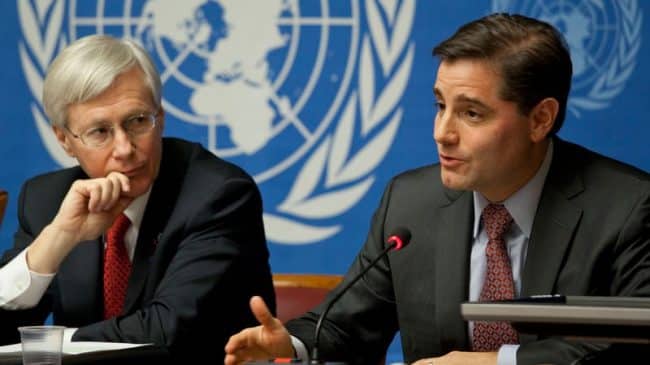Congress has already begun to engage the Federal Communications Commission (FCC) over its network neutrality policy. The House Energy and Commerce Commission is scheduled to vote Wednesday on a resolution opposing the new rules. “The last thing we need, in my view, is the FCC serving as Internet traffic controller,” said House Speaker John Boehner in a speech on Sunday.
With this week’s vote, which could be followed later by a move to defund any network neutrality initiative, Congress continues to press FCC Chairman Julius Genachowski, the primary author of the new rules, for more justification as to why they are necessary and whether the FCC actually has the authority to implement them. The most controversial of the new rules would prohibit phone and cable companies from charging companies such as Google, Netflix and Facebook for higher quality broadband connections. The most likely result of this rule would be that service providers would instead have to spread these costs across all broadband consumers.
As Congress continues to debate Genachowski over the merits of network neutrality, Americans have already made up their minds. A Rasmussen Report survey of likely voters conducted in late December-just as the FCC was adopting the new network neutrality rules-just 21 percent of those surveyed favored Internet regulation, while 54 percent said the FCC should keep its hands off the net. The balance was undecided.
America consumers may not be experts on how Internet technology works, but they do understand the economics of it. Whether it’s a high-tech service or something more tangible like organic produce, consumers know an upgrade in quality usually requires an additional investment.
Consumers know that the cost of an Internet quality upgrade must be paid for somehow, and they’ve correctly deduced that the FCC, through its network neutrality policy, thinks the source of those funds should be their own wallets, not the coffers of the companies responsible for adding the stress on the network.
This was all but confirmed when Netflix and its service provider, Level 3 Communications, asked the FCC to stop Comcast and other broadband service providers from charging them higher rates in order to guarantee the quality of bandwidth-crunching Netflix video. By then it was apparent that network neutrality was not about creating a level playing field, as proponents would have you believe, it was about creating a set of regulations that benefited some big players over others.
Then there are the rules themselves, which fall far short of what neutrality activists originally wanted. The biggest surprise is that they exempt wireless broadband service. FCC Commissioner Michael Copps, an ardent network neutrality supporter, could only muster a lukewarm better-than-nothing endorsement in a statement accompanying their adoption.
One cannot help but wonder why wireless was exempted. Now that consumers have seen the potential of devices like the iPhone and iPad, analysts see wireless as a mainstream broadband alternative. Mobile data traffic is expected to increase by a cumulative annual growth rate of more than 100 percent over the next five years, according to BuddeComm, an independent telecommunications market research company. And President Obama considers wireless to be an important part of the national broadband plan.
For the last five years, we’ve been told that network neutrality is necessary to preserve a free and open Internet. Yet, the FCC endorsed a policy that does not address wireless broadband, which stands to be the single most critical Internet delivery mechanism going forward.
That’s why Congress is right to question the whole policy outright. If Genachowski appears to be a reluctant regulator, perhaps it is because he simply using network neutrality as a vehicle to expand the FCC’s regulatory authority into broadband territory without considering the consequences that will result from poorly crafted policy. He may feel he can control his activist impulses, but can we count on the same from his successors?
It’s not so much that the rules seem less intrusive than originally planned. Genachowski still hasn’t made it clear why we need them at all and worse, he went ahead with them without solid legislative authority to do so. So, forget about what the net neutrality rules do or do not say; there’s no justification for the FCC to be making them at all.
Steven Titch is a policy analyst at Reason Foundation.
